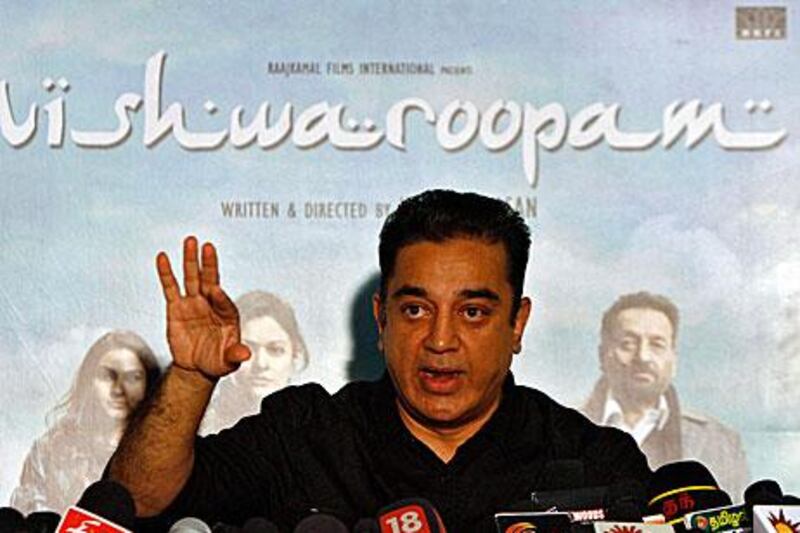DUBAI // The controversial Indian film, Vishwaroopam, will not be shown in UAE cinemas, the media regulator said yesterday.
A week after its global release and screening in some parts of India, Jumaa Leem, director of media content for the National Media Council (NMC), said the Tamil film will not be shown here because it "links Islam with terrorism".
The film has its global release in Hindi today. Mr Leem said: “It is not being shown in any of the Gulf countries, Malaysia or even in some parts of India, where there are a few lawsuits. The court first rejected, approved and again rejected the screening of the film.”
Mr Leem added: “It will not be screened here because of ... the film’s clear link between Islam and terrorism. Islam is based on tolerance. Islam says killing one innocent person is equivalent to killing all mankind.”
The decision comes a week after the NMC reviewed the film, which was scheduled to be released in the UAE on January 24. It was released globally on January 25.
Actor and filmmaker Kamal Hassan’s spy thriller, which cost millions of dirhams to make, has run into legal problems since its release, particularly in India where Muslim groups have labelled it offensive and demanded it be removed from cinemas.
Despite India’s central board of film certification clearing the film, the Tamil Nadu government imposed a two-week ban citing law and order concerns. As a compromise, Mr Hassan had offered to edit out scenes deemed to be offensive. The state high court will rule on the ban on Wednesday.
Phars Film, Vishwaroopam’s distributors here, confirmed it would not release the film. “There are limits to how much a movie can be cut without damaging its theatrical appeal,” said the company’s managing director, Pritesh Depala. “We respect the decision.”
The move has, however, left some filmgoers in the UAE disheartened.
“I am disappointed that it is not being released here,” said Lalithkumar Selladurai, a Sri Lankan expatriate.
Kamal Nawaz, an Indian expatriate, said: “Kamal Hassan has agreed to remove scenes and if it is OK, it could be screened. He is known not to hurt any religious sentiments but if the film does have anything offensive, it should be edited instead.”
[ pkannan@thenational.ae ]






